Mozambique: At least half of escaped inmates now recaptured
Mozambique: New Democracy calls for immediate release of election observers in Gaza
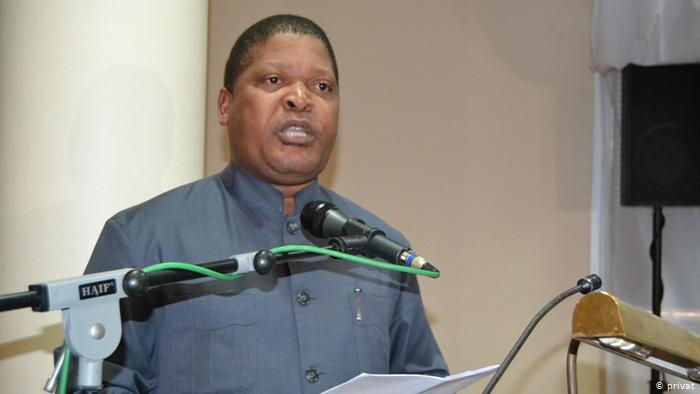
FILE: Salomao Muchanga. [File photo: DW]
Arrest of 18 New Democracy election observers in Gaza is a “gross violation of human rights,” the party president said in an interview with DW. Amnesty International also condemns the detention of young people.
The 18 members of the New Democracy party should not have spent even one night in prison, writes Deprose Muchena, Amnesty International (AI) regional director for southern Africa, in a statement issued on Monday (18/11).
It has now been more than a month since the young people were detained in Gaza province, southern Mozambique, accused of presenting fake credentials on the election day. Amnesty International calls for the “immediate and unconditional release” of the 18 and condemns their “secret transfer” on Sunday night (17/11) from Guijá, where they were detained, to a prison in Xai-Xai, 154 kilometres away. “Their transfer to a prison 154 kilometres away is an alarming development and appears to be a deliberate attempt by the authorities to obscure details of their whereabouts and treatment,” the human rights organisation writes.

For the president of the New Democracy, Salomao Muchanga, this situation is an “attack on democratic freedoms”. More than a month after the arrest of the 18, the detainees’ lawyers have not even been notified for access to the case files, Muchanga said, contradicting information previously provided by the party’s national representative, Quiteria Guirengane.
In an interview with DW Africa, the New Democracy president also calls for the release of the young people and condemns the state of justice in Mozambique. “Those who stuffed the ballot box are already free. And those who were monitoring the legality of the process remain unjustly detained.”
DW Africa: Have the lawyers had access to the detainees’ files?
Salomao Muchanga (SM): There is no notification to go to court. Our lawyers had no access to the files, and the prisoners were transferred from Guijá jail to Xai-xai jail without any explanation. We continue to demand the immediate release of these prisoners. This an attack on democratic freedoms, and the overturning of harmonious coexistence in our society. This is a situation of gross violation of human rights, because, more than the 18 young people, the message here is one of the intimidation of Mozambican youth. An entire generation is forbidden to participate in national political life.
DW Africa: What do lawyers say about this situation?
SM: That it is an illegal, unfair, inhumane detention. We have had lawyers from the outset, and we are currently working with other lawyers to make a broader front. We are connecting wider international reporting and lobbying mechanisms concerning this violation of human rights. The position of lawyers is to use all means at their disposal to ensure that these young people are released immediately and enjoy the fullness of their lives. That is why we are saying every moment that this daily fight is for the reunion between these prisoners and freedom.
DW Africa: I reiterate the question – have lawyers been notified or not to access detainees’ files?
SM: No notification has been made. We are sure of that. Our lawyers are positioned so that throughout this week they can interact with these institutions and, as soon as possible, get public clarification, national and international, on this issue.
DW Africa: Does it make sense for these people to be detained even after thirty days?
SM: It makes no sense – more than 30 days detained, inhumane conditions, transferred from one place to another without any knowledge [of lawyers and family members]. That is, we cannot continue to pretend that we are living in a democracy. And the demand that our lawyers will continue to make before the courts and the prosecutor’s office is that they must, urgently, immediately and unconditionally, be released.
DW Africa: Are there contacts between the detainees’ relatives and the party? What have you been addressing in these contacts?
SM: We talk every day, demanding the release of these youngsters together and every day. The families and the struggle we have been waging is the same. We are part of this fight. There is clarity in the role of families and the sincere effort that New Democracy leadership and members are making.
DW Africa: How should these electoral offences be dealt with?
M: It had to be fast. But this is the typical nature of our justice. Justice for the weak is very strong and for the rulers of the country it is extremely weak. Those who filled the ballot boxes are already free. And those who were monitoring the legality of the process remain unfairly detained. We need to redo, rethink our entire electoral system. And to say: it is worth having a democratic process, but it has to be serious, there have to be free, fair, transparent and clean elections, because what we actually want is that the peace we talk about is the fruit of justice.


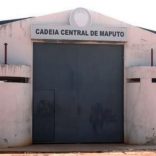
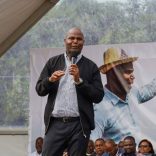
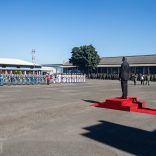
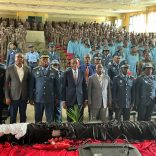
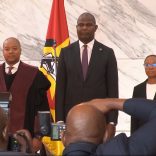
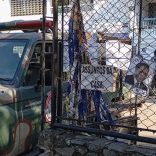




Leave a Reply
Be the First to Comment!
You must be logged in to post a comment.
You must be logged in to post a comment.